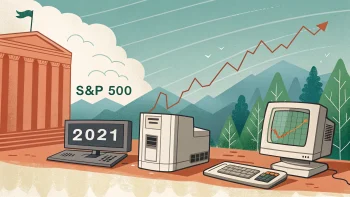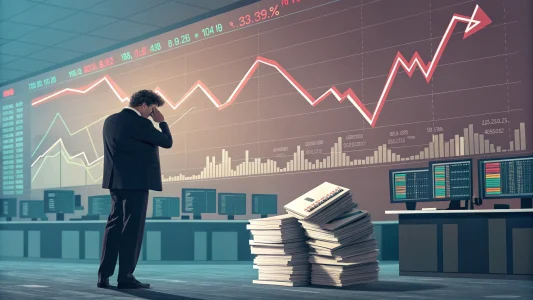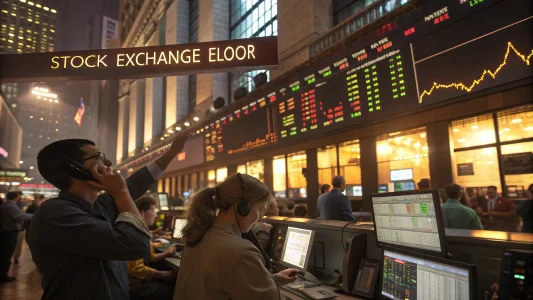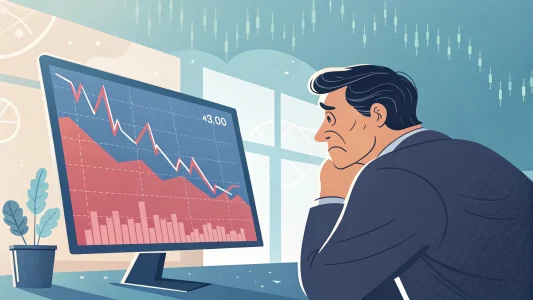The world’s attention is now focused on the upcoming inflation report following months of progressive decline in inflation. Set to be released on Wednesday, this Consumer Price Index (CPI) report has the potential to shake the markets, significantly affecting retail traders and professional investors alike.
A comprehensive analysis of the situation and its implications on the market provides a clear understanding of the report’s importance and the possible reactions of traders.
View this post on Instagram
A post shared by Taylor Sohns- CFP®, CIMA®, MBA- Finance (@lifegoalinvestments)
Table of Contents
ToggleA Glimpse into the Current Inflation Scenario
In the past 13 months, the annual inflation rate has diminished consistently. A dramatic plunge from 9.1% in June 2022 to 3% in June 2023 highlights the critical development situation, particularly considering the market’s dynamics. This upcoming report, presenting July’s inflation data, carries a real possibility of a marked reversal, signaling an increase in inflation once again.
Economists anticipate the July report will display a 3.4% inflation rate – an alarming increase from 3% in June. The reason for this unexpected turnaround is rooted in the comparables. Inflation reduced each month during the 12-month period mentioned above, as depicted in the accompanying chart. June 2023 faced a staggering drop in inflation compared to the 1.4% inflation of June 2022.
See Also: The 2023 July Job Report
See Also: Housing Marketing Update: May 2023
The Present Comparison: July
Now, let’s focus on July and its 0% inflation rate. This time, the comparison with the previous year possesses the potential to produce a dramatically different picture. If inflation occurs in July 2023, the yearly number will escalate, as anticipated. Further, as August 2022 also experienced 0% inflation, a similar pattern might emerge, with two successive months evidencing CPI growth.
The Stock Market’s Reaction
The impending CPI report for July is a critical market-moving event and will likely cause significant shifts in the trading realm. Professional investors are indeed expecting this increase. However, the question arises: are retail traders prepared for this? And, more importantly, will the potential headline provoke fear, subsequently impacting the market adversely?
Retail traders tend to act on emotions, which could lead to either panic selling or ill-advised moves influenced by fear. The impact would be two-fold. Tradable assets, such as stocks and bonds, may be affected as the market fluctuates, while overall confidence in the market also takes a hit. This event, with its significant consequences, may cause an increase in volatility, leading to potential profitability for some traders. However, others may face considerable losses due to hasty decisions or lack of preparation.
The Role of Retail Traders in the Market Reaction
Despite possessing limited influence compared to professional investors, retail traders still hold a significant role in propelling market shifts. Owing to their comparatively smaller capital and limited experience, retail traders have the potential to influence the market in general, heightening volatility and creating momentum swings.
Their expectations and reactions to the inflation report become critical when analyzing the potential market change. If the report instills fear among retail traders, it could trigger substantial selling, causing stock prices to reduce and the market to react adversely. Contrarily, a strong reaction based on confidence or anticipation could motivate increased investments, impacting the market positively.
Conclusion
The upcoming inflation report’s release is undoubtedly a decisive moment for the stock market and retail traders. The anticipated inflation increase, followed by potentially oscillating market reactions, emphasizes the significance of retail traders’ responses. Their perceptions and emotional responses will directly impact market conditions, ushering positive or negative effects. Thus, knowing the market dynamics and preparing for the release, retail traders must act prudently to minimize potential losses and maximize profit opportunities.
Frequently Asked Questions
1. What is the focus of the upcoming inflation report?
The upcoming inflation report is drawing the world’s attention after a series of declining inflation rates. Set to be released on Wednesday, this Consumer Price Index (CPI) report has the potential to significantly impact the markets, affecting both retail traders and professional investors.
2. How has the inflation scenario developed over the past year?
Over the past 13 months, the annual inflation rate has consistently decreased. From a high of 9.1% in June 2022, it fell to 3% in June 2023, highlighting the importance of the evolving situation. The upcoming report, which presents July’s inflation data, could potentially indicate a reversal with a marked increase in inflation once again.
3. What are economists anticipating for the upcoming July report?
Economists predict the July report will show a 3.4% inflation rate, a significant increase from the 3% recorded in June. This unexpected turnaround is rooted in comparative data, where inflation decreased each month during the previous 12-month period.
4. How does the comparison with previous years impact the inflation analysis?
In comparing July’s 0% inflation rate with the same month in the previous year, there is potential for a starkly different outcome. If inflation occurs in July 2023, the yearly figure could escalate, much like the potential emergence of a pattern seen in August 2022, which also experienced 0% inflation.
5. How might the stock market react to the impending CPI report?
The impending CPI report for July is anticipated to be a critical market-moving event. While professional investors expect an increase, concerns arise regarding the readiness of retail traders. The potential for fear-inducing headlines leading to adverse market reactions is a significant consideration.
6. How do retail traders typically respond to market events?
Retail traders are known to react emotionally, potentially resulting in panic selling or impulsive decisions driven by fear. This could lead to a dual impact: tradable assets like stocks and bonds may be affected by market fluctuations, and overall market confidence could suffer. Increased volatility might present profitability opportunities for some traders, while others could face substantial losses due to unprepared actions.
7. What role do retail traders play in market shifts?
Despite having less influence than professional investors, retail traders play a significant role in market dynamics. Their comparatively smaller capital and experience levels still enable them to impact the market, creating volatility and momentum swings.
8. How do retail traders’ expectations influence market reactions?
The expectations and reactions of retail traders are crucial factors when analyzing potential market changes. If the inflation report sparks fear among retail traders, it might lead to significant selling, causing stock prices to decline and negatively impacting the market. Conversely, a confident or anticipatory reaction could increase investments, positively influencing the market.
9. What is the key takeaway from the article’s conclusion?
The impending release of the inflation report holds immense significance for both the stock market and retail traders. The projected increase in inflation and potential market oscillations underscore the importance of retail traders’ responses. Their emotional reactions will directly shape market conditions, with the potential for positive or adverse effects. Retail traders need to understand market dynamics, be prepared for the report’s release, and act wisely to minimize losses and seize profit opportunities.
Featured Image Credit: Lukas Kloeppel – Pexels – Thank you!

















